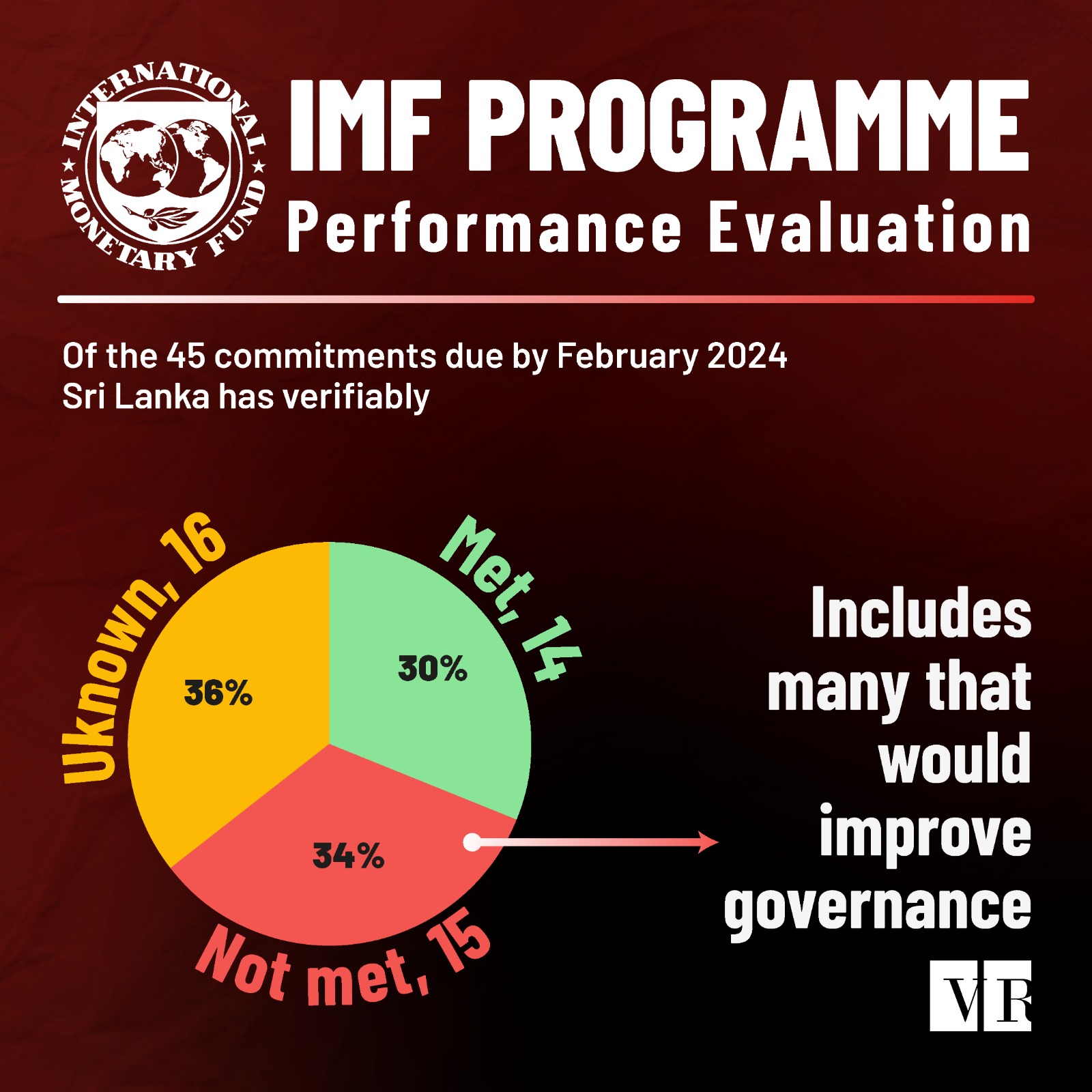According to the February update of Verité Research’s ‘IMF Tracker’, Sri Lanka has verifiably failed to meet 33% of the commitments due by the end of February 2024 in its International Monetary Fund (IMF) programme.
Many of these unmet commitments, categorized as ‘not met’ on the IMF Tracker, were aimed at improving governance. They include pledges related to transparency through publishing information and the passage of legislation aimed at enhancing governance standards.
Recognizing poor governance as a root cause of Sri Lanka’s economic crisis, the IMF conducted a Governance Diagnostic Assessment, making Sri Lanka the first Asian country to undergo such an evaluation.
Additionally, the status of 36% of the commitments remains ‘unknown’ due to insufficient data availability for progress assessment. By the end of February, only 31% of commitments were verifiably ‘met’.
In the second round of IMF programme funding received in December 2023, Sri Lanka was expected to fulfill 45 commitments by the end of February. However, the IMF Tracker dashboard indicates that only 31% were classified as ‘met’, with 33% labeled as ‘not met’, and 36% categorized as ‘unknown’.
Among the 15 ‘not met’ commitments, six pertain to publishing information, while four involve actions related to adopting new laws. These include obtaining parliamentary approval on the Banking Act, introducing automatic indexation of excises to inflation, making legislative changes to establish a debt management agency, and presenting the public finance management law to parliament.
Despite inclusion in the IMF staff-level agreement in September 2022, these four governance-related actions have been neglected, indicating persistent challenges in addressing governance issues within Sri Lanka’s economic framework. Source – english.newsfirst.lk












